Savour Planet Goes to Tagaytay City!
September 2018
Together with Nurture Wellness Village, The Healing Kitchen, and WhenInManila.com, World Wide Fund for Nature (WWF) Philippines brought its successful workshop series for Filipino diners to Tagaytay City last September 8, 2018
“A sociologist friend of mine once told me that a hundred years ago, we Filipinos ate vegetables, beans, and grains, but somehow because of our colonial history, our diets changed. Being sustainable, for us, is actually going back to basics. We were like that before and we can do that again now.”
Joel Palma, CEO and President of WWF-Philippines, candidly shares this anecdote whenever he’s talking about sustainable food in the context of our country. Sustainability in food, particularly when it comes to dining out in restaurants, can come in many forms – sourcing from local farmers, using local ingredients, creating seasonal menus to accommodate the freshest produce offered, minimizing food waste, eating more plant-based dishes. These concepts often make Filipino diners confused as to how they can start. But really, it is all going back to basics for us. It’s going back to our roots and looking at how drastically our lifestyles have changed. It is about becoming intimate once again with our cultural heritage and the natural resources that have fed and sustained so many generations of Filipinos.
“Another fact, 1/3 of the food produced globally is wasted, so that’s about 1.3 billion tons of food wasted every year. By 2030, if we don’t do anything about this, the world’s annual food waste can increase to 2 billion tons.”
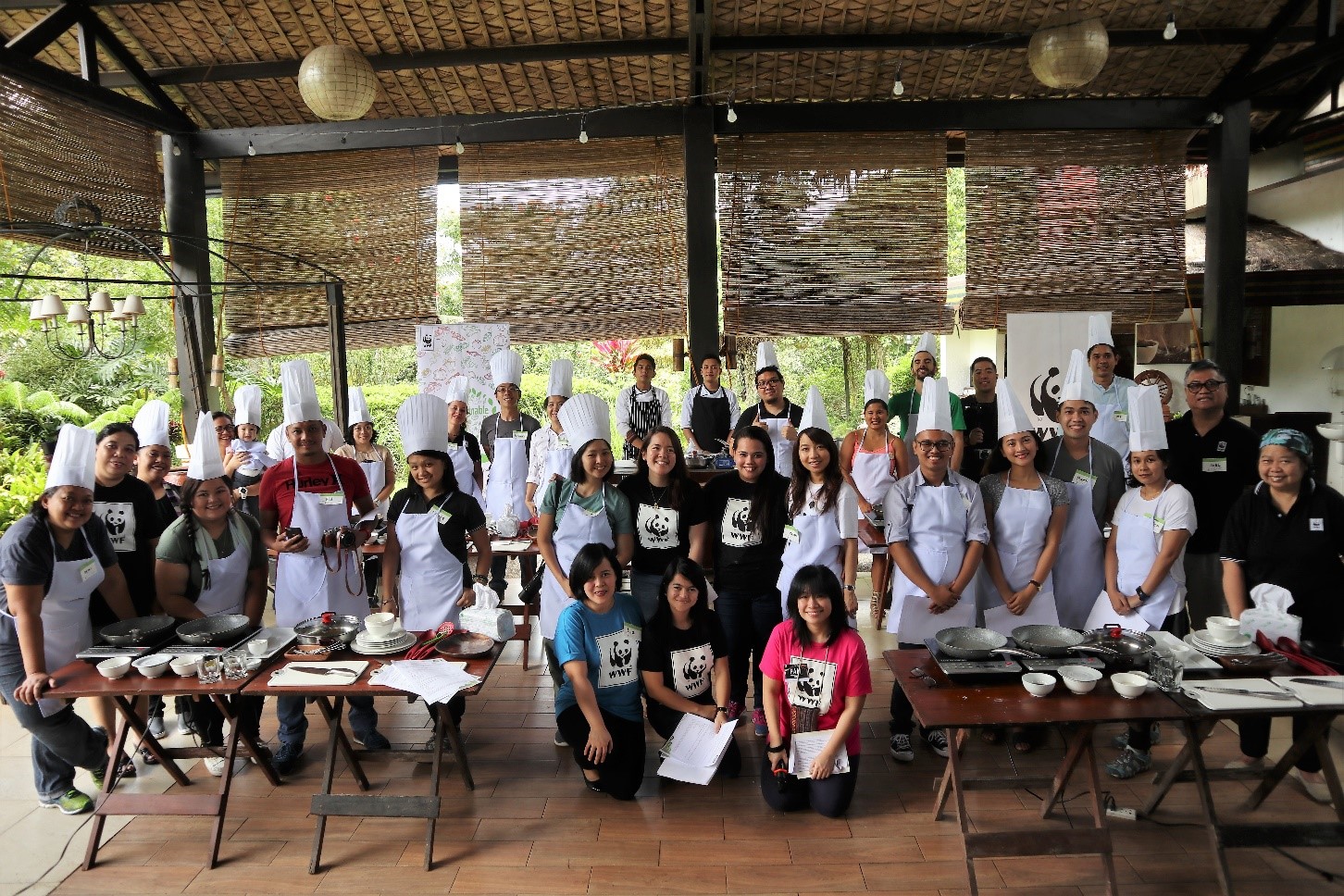
Participants from the Tagaytay City leg of Savour Planet: Cooking with a Purpose consisted of representatives from traditional and digital media, bloggers, and delegates from the international offices of WWF in Germany, France, Thailand, and Indonesia. © Gabriel Villalon / WWF-Philippines
This is a terrifying statistic considering that in Metro Manila alone, 2,175 tons of food end up in trash bins daily. And one of the reasons why food waste has become so rampant in the country, particularly in metropolitan cities, is because of the proliferation of food service establishments. While this is not necessarily a bad thing for our economy and our quality of life, it has made the ritual of eating very technical and complicated. Which cuisine do I want to try today? Where’s that newly-opened restaurant I’ve read about online? Which restaurant can provide me with an Instagrammable dish? Enjoying food has become so complex, littered with trivial concerns and clouded by the need for social affirmation that we often forget what truly is important. In order to satisfy our follies, the food service industry has veered towards the unsustainable, and now that our planet is suffering, our food security threatened, it is high time that we think twice, rewind, and go back to basics.
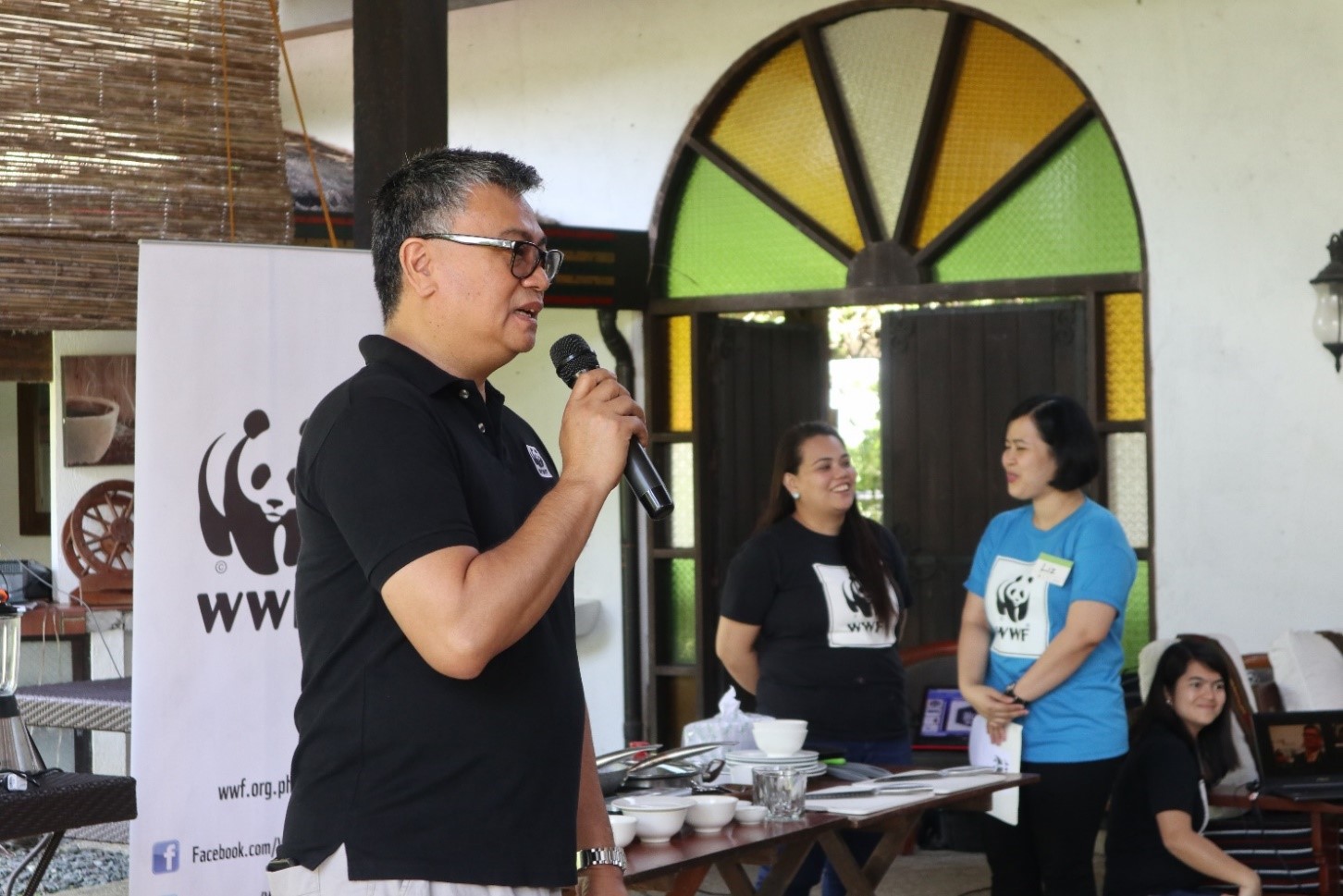
Joel Palma, CEO and President of WWF-Philippines, shares the importance of sustainable dining in ensuring food security and the promotion of a more living planet in the context of the Philippines. © Gabriel Villalon / WWF-Philippines
And this is precisely what the participants of Savour Planet: Cooking with a Purpose – the third leg of this workshop series – did in Tagaytay City.
Recognizing the need for Filipino diners to experience food again in its most basic form, WWF-Philippines, through its pioneer project on sustainable consumption and production, The Sustainable Diner: A Key Ingredient for Sustainable Tourism, has brought its flagship workshop series to Nurture Wellness Village – a well-recognized and respected outfit when it comes to sustainable living. The workshop series aims to empower and educate Filipino diners, partners from the media, the academe, as well as fellow non-government organizations and food security projects on the importance of sustainable food systems and sustainable dining. This particular run was made special by the presence of delegates from WWF’s international offices – Germany, France, Thailand, and Indonesia.
Leslee Benitez, Operations Manager of Nurture Wellness Village, welcomed the participants by introducing Nurture Wellness Village and their philosophy of holistic CHOICES. “We are a member of Zero Carbon Resorts and from the onset, Nurture Wellness Village has always embraced environmental protection as a guiding philosophy. Sustainability practices have been integrated in our operations with holistic living in mind. Our restaurant serves vegetables from its own organic garden which uses compost from our kitchens as fertilizer. As part of the Locavore movement, most of our ingredients are sourced, if not from our own gardens, from nearby areas to guarantee freshness and to support our local communities,” says Benitez. “This is why we developed a wellness model that is also distinctly Filipino. We believe that healthy living should not only be sustainable, but also one that immerses you in a wellness experience that is uniquely Filipino.”
Melody Melo-Rijk, project manager of The Sustainable Diner project and sustainable consumption and production in the Philippines, reiterated the importance of the media’s role in shaping the behavior of consumers towards sustainable food and dining. “From our experience in conducting The Sustainable Diner project, we have discovered that a lot of Filipino diners are still having difficulties relating sustainable dining with environmental protection. Did you know that about 70% of biodiversity is lost when producing and consuming food? That food production and consumption contributes to global greenhouse gas emissions?” asks Melo-Rijk. “Because dining is a constant part of our daily lives, we often overlook how much our food choices affect the planet. And with how much Filipinos love food, changing the way they look at food can be quite a challenge. Which is why we really need your [media] help in spreading awareness, educating your peers and your audiences, and promoting sustainable dining in the simplest way possible.”
These micro-talks were soon followed by The Healing Kitchen cooking session, where the participants were grouped together and given their own stations, as well as an access to the Chef’s Garden, where they could get the needed herbs straight from the source. As described on their website, “The Healing Kitchen is a delicious, evidence-based concept that goes beyond the Farm to Table concept to feature nutrient-rich dishes carefully concocted to heal and regenerate the body.” The dishes produced from this activity were served to everyone during lunch. Following this interactive morning session were two tours crafted to really drive home the need for us to go back to basics: a bokashi composting tour which showed how Nurture Wellness Village manages their bio-waste to further nourish the soil, as well as a tour around their Farmacy – Nurture Wellness Village’s ode to farm tourism where visitors can learn more about local, indigenous plants and produce, and how they are used to cure ailments and improve the function of specific body organs.
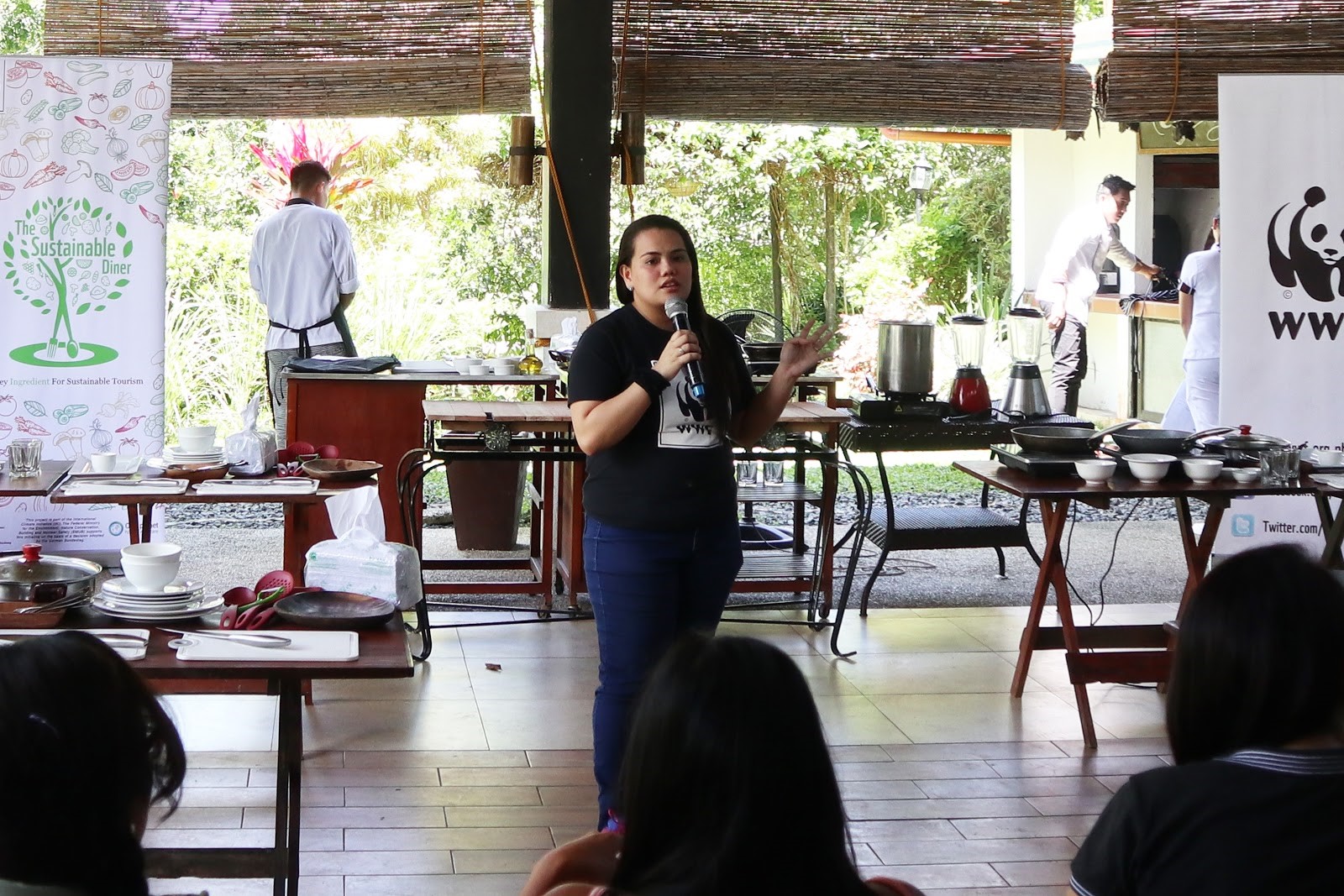
Melody Melo-Rijk, WWF-Philippines’ Project Manager for Sustainable Consumption and Production, presents The Sustainable Diner project to the Tagaytay participants. © Gabriel Villalon / WWF-Philippines
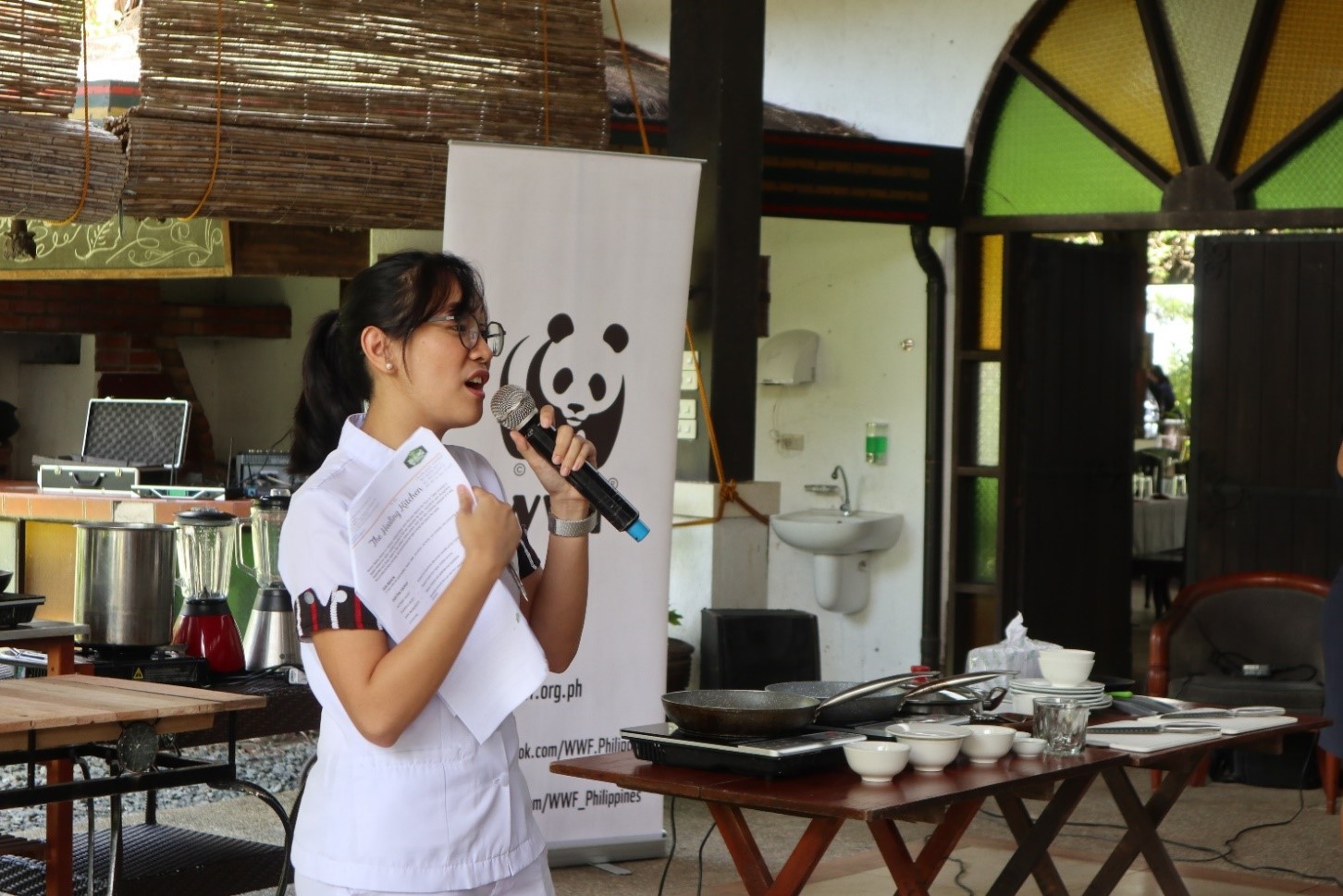
Christine Alcantara, Nutritionist-Dietitian of The Healing Kitchen Team, talks about the importance of healthy food and healthy diets in promoting holistic well-being. © Gabriel Villalon / WWF-Philippines
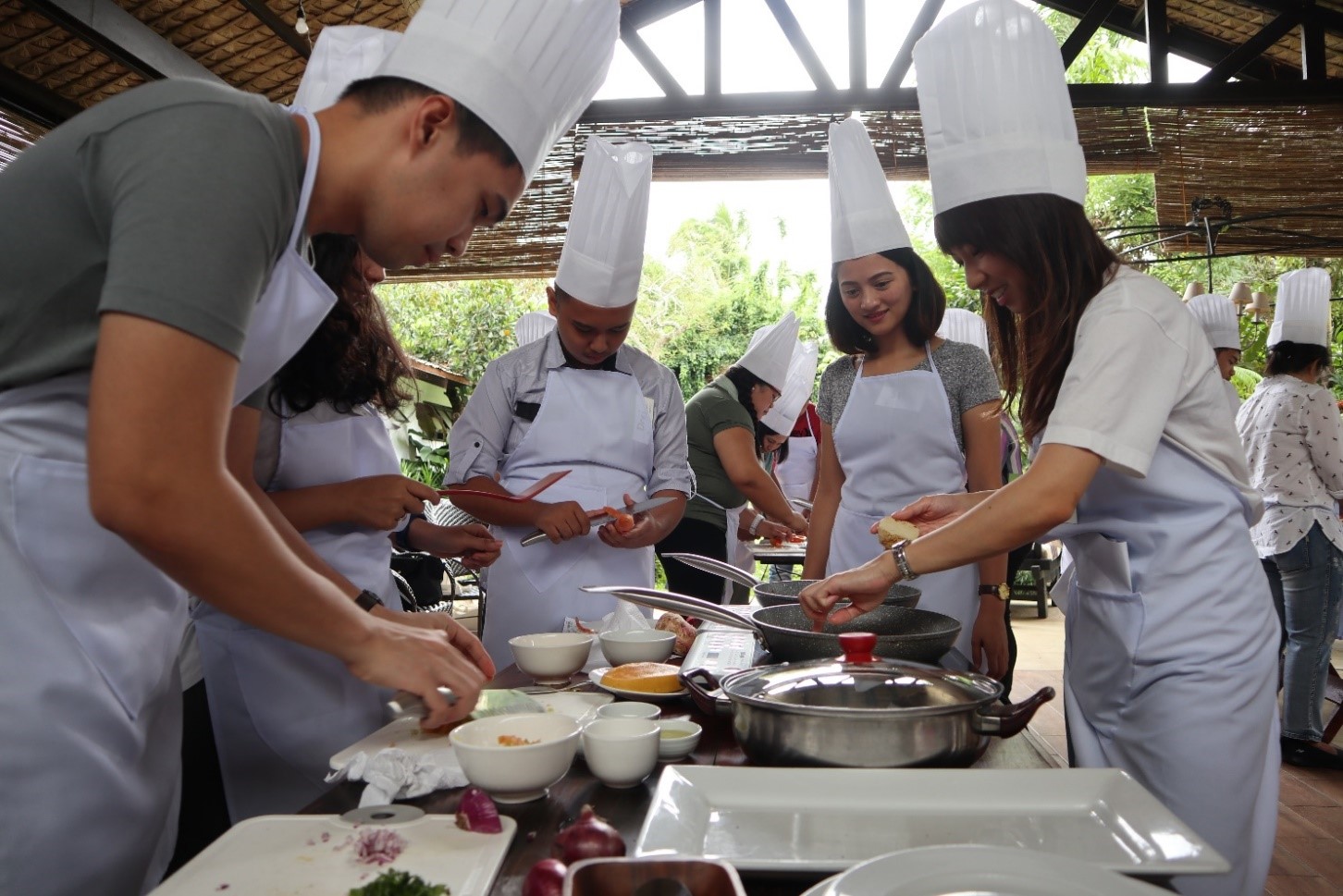
Participants following the chef’s cooking demo by replicating the recipes in their very own team station. © Gabriel Villalon / WWF-Philippines
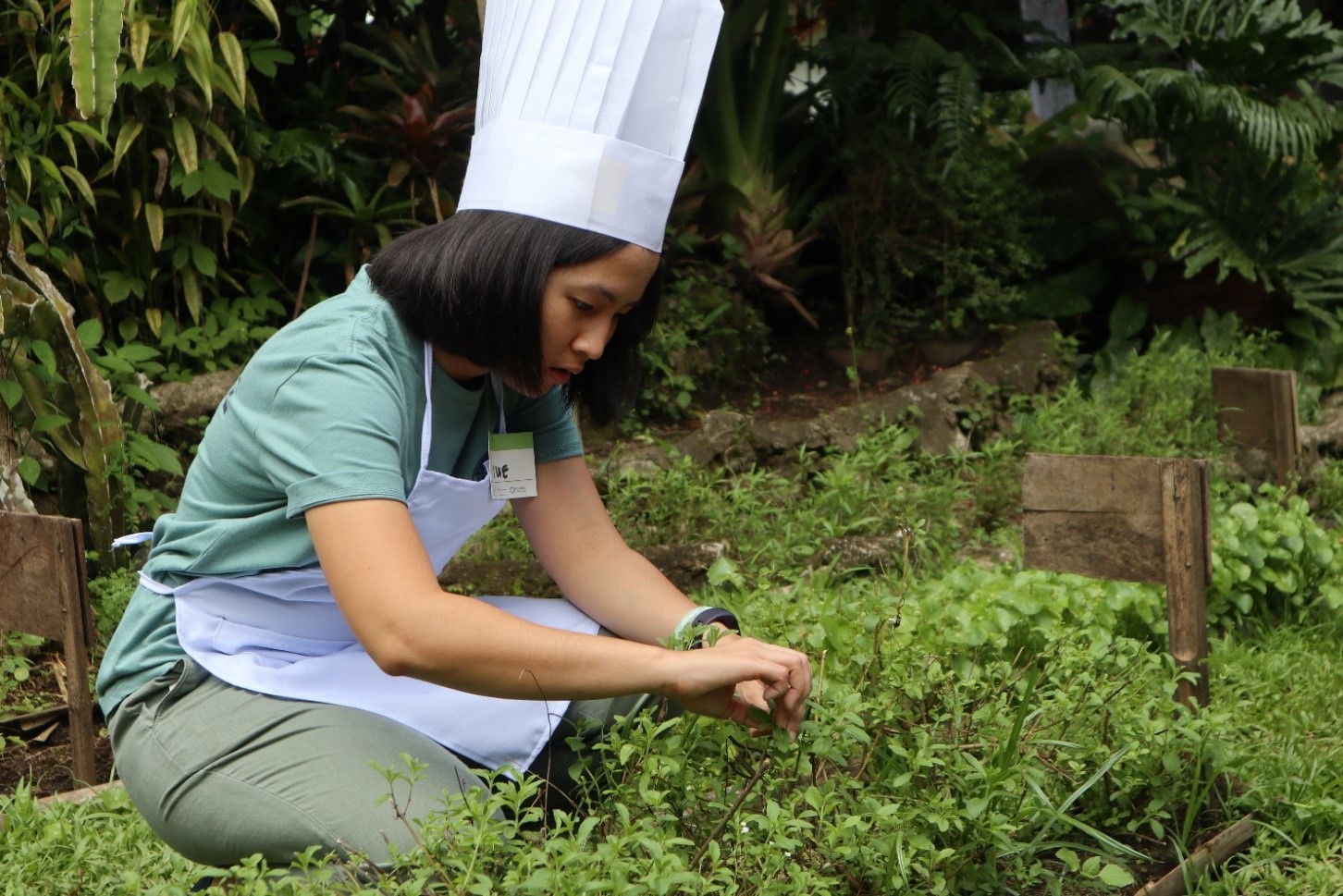
Participants were given access to the Chef’s Garden, where they were able to hand pick herbs needed for the recipes. © Gabriel Villalon / WWF-Philippines
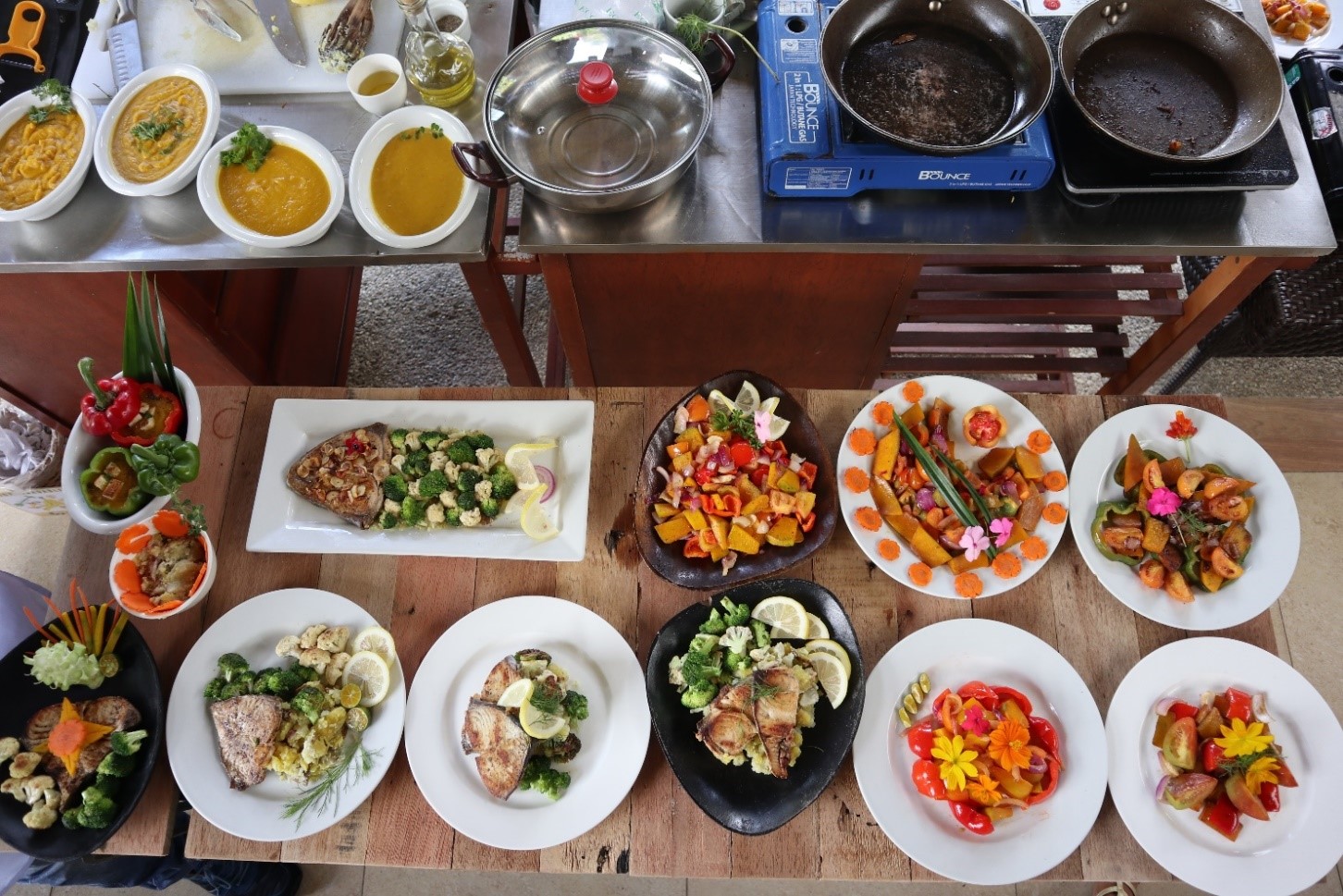
The result of The Healing Kitchen cooking session – an array of colorful, healthy, local, and sustainable dishes that the participants got to enjoy and share during lunch. © Gabriel Villalon / WWF-Philippines
By allowing Filipino diners to cook their own food, to pick their ingredients straight from the source, and to learn how to replenish the health of our soils through composting, WWF-Philippines hopes to instill in them a renewed appreciation for the basic food systems that have nourished generations upon generations of Filipinos. When we truly go back to basics in appreciation of our cultural roots and heritage, we not only ensure health and wellness for us and our families, but also the health of our country and our planet through mindful, holistic choices.
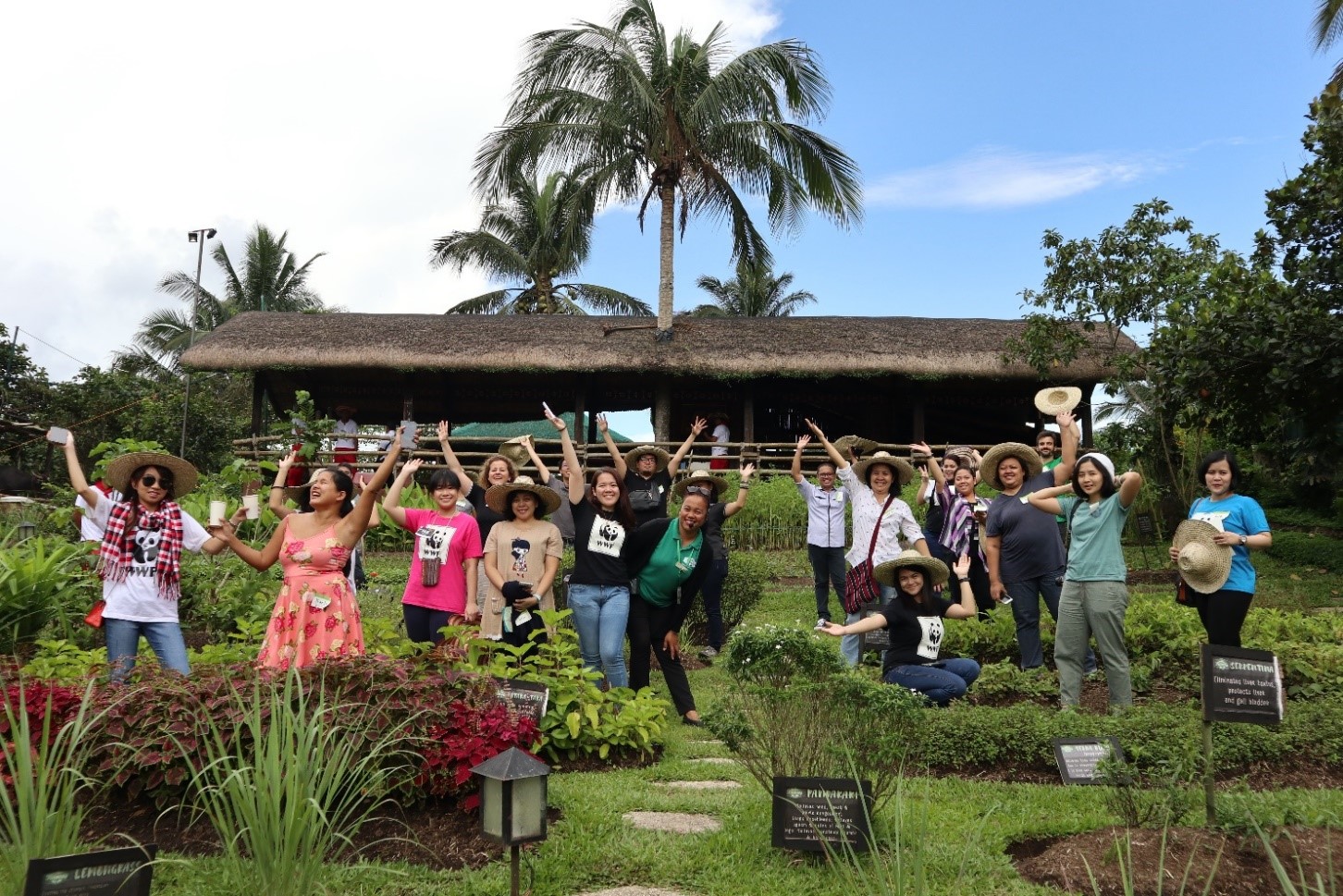
Experiencing the Nurture Farmacy tour and getting to learn more about our local, indigenous plants and produce and how they help us live healthier lives! © Gabriel Villalon / WWF-Philippines
The Sustainable Diner project, under WWF-Philippines’ Sustainable Consumption and Production, is part of the International Climate Initiative (IKI). The Federal Ministry for the Environment, Nature Conservation and Nuclear Safety (BMU) supports this initiative on the basis of a decision adopted by the German Bundestag.
